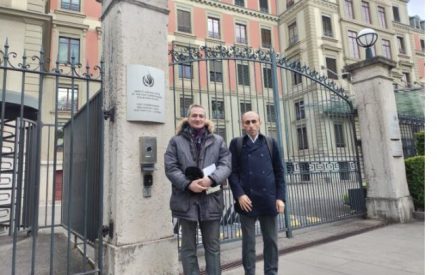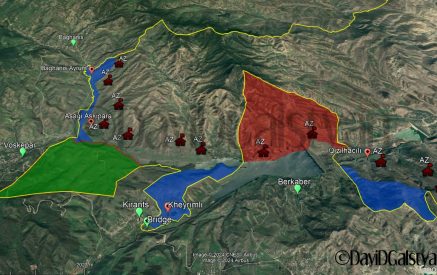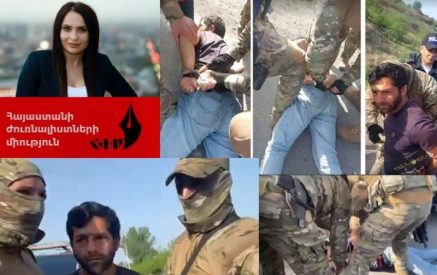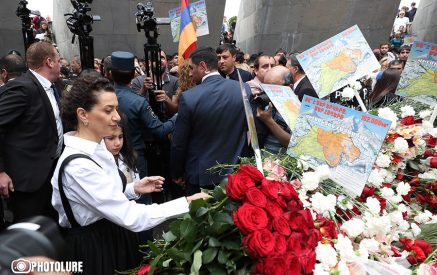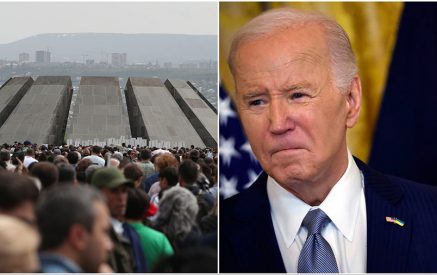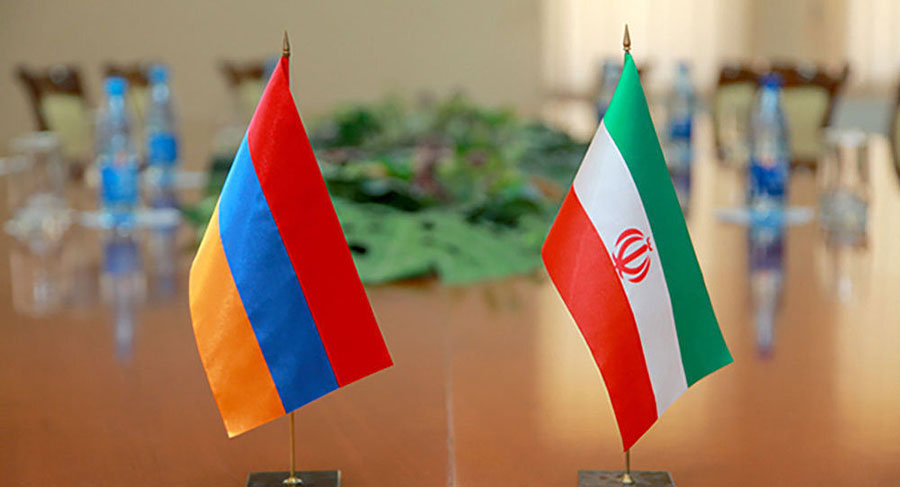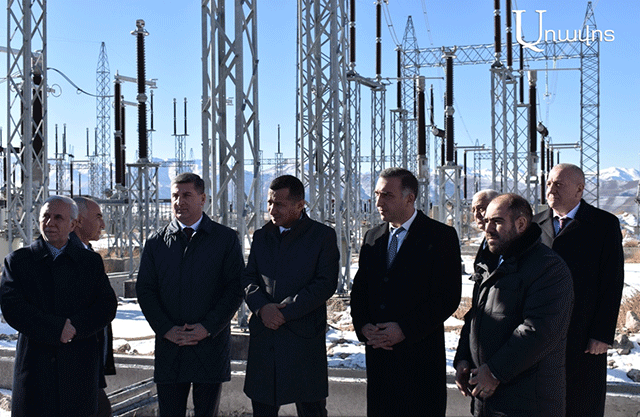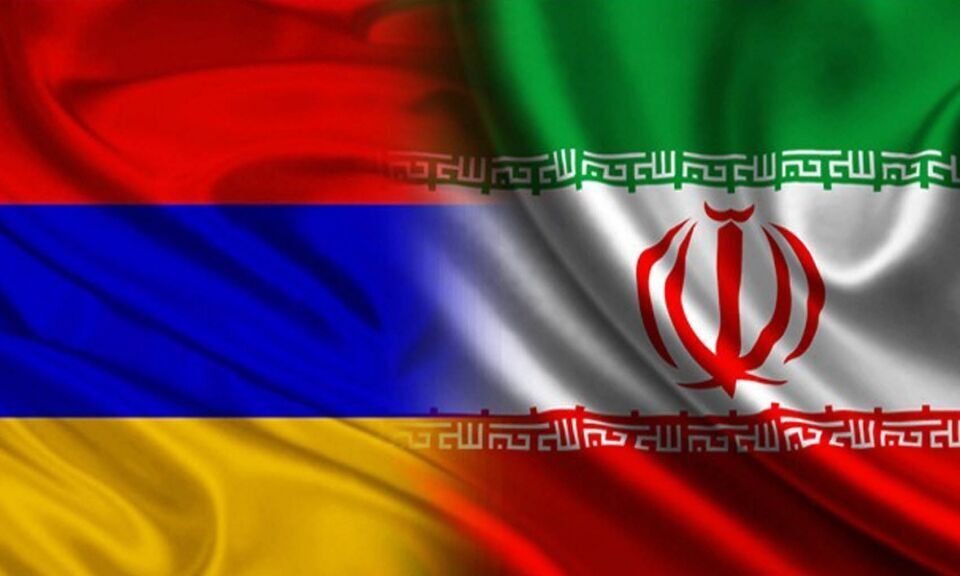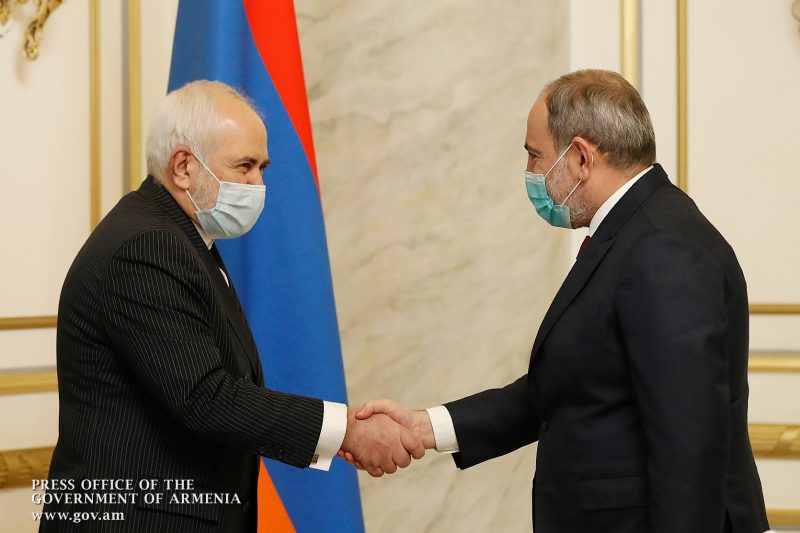The old regional order has been destroyed, and the new one has not been fully formed. This transition at the regional level is also taking place at the global level. Against the backdrop of this turbulence, Armenia faces new security threats. In order to mitigate them, it is necessary to accelerate economic and small state power potential.
Iran’s role in Armenia’s communications
To unlock your potential, you must first pay attention to your neighborhood. For decades, Armenia has been under blockade by Turkey and Azerbaijan. In 1993, Ankara unilaterally closed its border with Yerevan. In 2022, Azerbaijan blocked the Lachin corridor connecting Armenia to Nagorno-Karabakh. The consistency of Ankara’s and Baku’s steps leads to the conclusion that the blockade policy is one of the instruments of the policy directed against Armenia. Therefore, opening the borders will not mean that one day they will not be closed again.
Read also
Over the past decades, Georgia and Iran have served as Armenia’s window to the outside world. In the case of Tbilisi, the allied nature of Armenian-Russian relations could influence relations between the neighbours.And the extensive presence of Azerbaijan and Turkey in the Georgian economy and energy sector can also affect relations between Yerevan and Tbilisi. An example of this is the Georgian refusal to provide airspace for the transit of arms to Armenia during the 2020 war. At that time, an aircraft carrying weapons from Russia had to make a long detour over the Caspian Sea, to deliver to Armenia through Iranian airspace. But Georgia allowed Azerbaijan to use its airspace to carry weapons from Turkey and Israel.
Today, the military-technical co-operation between Armenia and Russia is at a low level. The arms and military equipment envisaged in the 2021 contract have not yet been fully delivered to Armenia. In the context of diversification in this sphere, Armenia’s efforts to intensify its relations with India are noteworthy. Iran can also play an important role. The only route for delivery of Indian arms to Armenia is through the territory and airspace of Iran. It is not possible to deliver weapons in any other way today. Therefore, Iran’s role remains significant in the context of restoring Armenia’s military potential.
Moreover, the Arab and Asian destinations are becoming increasingly important in Armenia’s foreign economic activities: the UAE and China are among Armenia’s main trading partners. The most convenient route for cargo delivery is through Iranian ports, which provide Armenia with access to the world’s ocean. Therefore, as part of the diversification, where the growing Asian and Southern markets may take an important place, Iran’s role in Armenia’s communications will grow rapidly.
Iran’s Role in Armenia’s Economic Development and Energy Security
In addition, Tehran plays a key role in economic transport and logistics routes. Armenia is part of the North-South and Persian Gulf-Black Sea projects. From the perspective of Armenia’s interests, these projects should link Yerevan with the Indian market, as well as the Gulf States, whose role is also increasing as part of Armenia’s diversification efforts in foreign policy. An important component is the establishment of its own or a joint terminal with India in the Iranian port of Chabahar. It will facilitate access to Arab, Asian and Indian markets, with the potential to become an important hub for Armenia in the short term.
The full-fledged free trade agreement (FTA) between the EAEU and Iran, signed at the end of 2023, creates new opportunities for Yerevan, too. Armenia is the only EAEU member state that has a direct land border with Iran. According to Eurasian Economic Commission forecasts, trade turnover between the EAEU and Iran will triple in the short term. Such a prospect will help Armenia unlock its transit potential by focusing on vertical rather than horizontal routes, as well as create new opportunities for the economy. An example could be to establish on its territory the production of goods and services that would be relevant to both the EAEU member states and Iran, which has signed a Free Trade Agreement with the EAEU, as well as India, which is negotiating a similar agreement.
The Iranian direction of Armenia’s diversification policy is also relevant in the energy sector. Today, most of Armenia’s gas comes from Russia at a discounted price of US $165 per 1000 m3. However, the importance of diversification is not due to the risk of higher prices. Over the last few years, the supply of Russian gas through the territory of Georgia has been temporarily suspended due to various circumstances, including reconstruction works. According to different assessments, Iran can supply Armenia with approximately 1 billion m3 of gas per year, which is more than half of its annual consumption. Moreover, an Iranian direction of gas imports will stimulate the development of electricity generation in Armenia, as the formula of exchanging “gas for electricity” will pursue.
Iran’s Role in Ensuring Armenia’s Security
The balance of power in the South Caucasus has changed radically after the 2020 war. Azerbaijan and Turkey began to set the regional agenda by putting military pressure on Armenia. Azerbaijan’s takeover of Nagorno-Karabakh in 2023, Baku’s continued refusal to sign any peace agreement with Yerevan, its regular aggression against Armenia during 2021-2023, combined with its continued military build-up, indicate Azerbaijan’s territorial ambitions against Armenia.
In this context, it is important for Armenia to have a close partner able to level the imbalance of power in the region. Iran, who has several times stated the need to maintain the regional status quo and its readiness to prevent changes in the regional configuration, can be such an actor. According to some reports, in September 2022, Tehran already helped prevent a larger-scale aggression of Azerbaijan against Armenia. This shows that beyond political will, there are relevant capabilities that can be deployed at a critical moment.
For Tehran too, Armenia’s security and the existence of a direct Armenian-Iranian border is an important condition for the country’s development. Otherwise, if Turkey and Azerbaijan open a corridor through Syunik, Iran’s entire northern border will be under Turkey’s control or in its sphere of influence. Therefore, Tehran is interested in strengthening Syunik as the most vulnerable region. The opening of the consulate in Kapan and investment programmes in the region such as the construction of the Agarak-Kajaran new highway, are being implemented in this logic.
These measures are primarily aimed at preserving stability in the northern part of the Iranian border. However, Tehran’s role in ensuring Armenia’s security may not be limited to these initiatives. One of the prospective areas of cooperation is military-technical. Modern Iranian weaponry has been tested through various conflicts. In addition to the quality, Iranian weapons have a number of advantages relevant for Armenia. Firstly, the products of the Iranian military-industrial complex are relatively low-cost. This is not only a competitive advantage, but also an important factor for Armenia’s rapid military capacity building. Secondly, the geographical proximity allows for prompt deliveries of both arms and military equipment and organizing maintenance. Thirdly, the range of Iran’s MIC is quite broad – from artillery and UAVs to electronic warfare and air defense systems. Despite the advantages of large-scale procurement in the Indian market, this area of cooperation should also be diversified so as not to depend solely on a single supplier.
Therefore, all necessary preconditions have been created for expanding cooperation with Iran, the main of which is a good degree of alignment of interests. Taking into account that one of the principles of diversification is the expansion of foreign policy directions, Tehran can be one of the most relevant ones for Armenia . At the same time, it is important not to perceive Iran solely as a transit route. Tehran plays an important role in restoring the balance of power in the South Caucasus, which is in Armenia’s interests today.
There might be concerns for Armenia on the threat of Western sanctions for close cooperation with Iran. However, these concerns may be overestimated. First, the growing trade and economic cooperation between Yerevan and Tehran today, as well as discussions on defense cooperation in 2015-2016, have not triggered serious concerns from Brussels and Washington. Second, Iran has experience in conducting military exercises with Azerbaijan, which has also not been affected by sanctions. Third, cooperation with Iran does not mean replacing existing economic and security partners, which could cause resentment on the part of Russia, the EU, the US and India. Thus, Armenia in its pursuit of diversification can develop smooth relations with all centers of power, including Iran.
Sergei Melkonian



